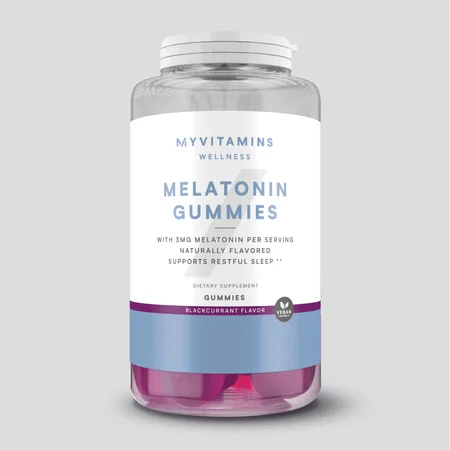Studies Show Early Rising is Good For You After All

When it comes to sleep schedules, people's preferences can be totally different. Some like to stay up and active into the night, while others prefer an early bedtime and to rise and shine at the crack of dawn. And some people fall somewhere in between. These different types of activity periods are known as chronotypes. They can affect things like performance, with early birds performing best in the morning, and night owls being the most productive in the evening.1
Which Type is Better?
These preferences are partly genetic and are influenced by factors like age and gender.1 Young children and older adults tend to be on an earlier schedule while adolescents prefer a later one. So, which chronotype is better? Well, people generally tend to believe that going to bed and waking up early is better for you, for reasons like increased productivity and motivation. Many successful people embody this ideology like Apple CEO Tim Cook and Disney CEO Robert Iger, who both rise at a crisp 4:30 AM. But what does the science say?
According to the research, there are indeed several health benefits that have been linked to going to sleep and waking up at earlier times, like reduced prevalence of heart disease.2
And according to two recent studies, there are newly uncovered pros of being an early riser that may shock you.
Burning Fat and Metabolic Health
A September 2022 study released in the journal of Experimental Physiology analyzed 51 adults with metabolic syndrome. The adults were monitored while they exercised and while they were resting to see how they utilized their body's fuel stores. There are two main options for fuel that people can use in their bodies - carbohydrates or fats. The results showed that those who rise earlier and perform activity earlier in the day, referred to as "early chronotypes", are better at oxidizing fat than "late chronotypes" and used more fat as a fuel source when both exercising and resting.2 This means that during fasting (or resting) and exercise states, the early risers burned more fat than the late risers.
Now, the early birds were not exercising harder or more intensely than the night owls. Thus, these differences are due to variations in metabolism and not workload.2
This could potentially also mean that early risers are at a lower risk for diabetes, because of the way they utilize their fuel stores, but more research needs to be done.2
Early risers were also shown to engage in less sedentary behavior and perform more physical activity in the morning and during the day than late risers. Thus, going to sleep and rising early may have positive implications for metabolic health.2
Verbal Intelligence
Past research has suggested that evening types display higher levels of verbal intelligence than morning types. But a new study published in Current Research in Behavioral Sciences shows just the opposite. 61 men and women between the ages of 17 and 53 were studied using activity monitors, which they were asked to wear for at least 10 days, to objectively determine their chronotypes (sleep and activity patterns). The subjects then took cognitive ability tests at home, and the results demonstrated several differences between the late and early risers.1
Higher verbal abilities were linked to those who went to sleep later, and the younger subjects. This was expected and reflects similar findings to past research. But what was shocking was that morning folks, or those who get up early, were also associated with superior verbal abilities.1 The early risers also demonstrated higher stability in their sleep/wake cycle, meaning their circadian rhythms (natural body rhythms) were more in synch, and they go to sleep and wake up at the same times on a more consistent schedule.1
If anything, this study shows that the link between intelligence and chronotype is more complex than previously believed, and in contrast to what was once thought, morning types may actually come out on top when it comes to verbal intelligence.
Take Home Message
All in all, there are some major benefits of going to sleep and waking up earlier according to the research. But the topic is complex, and different combinations of the two chronotypes, for instance, people that go to sleep late but wake up early, may still reap some of the benefits of the early chronotypes.
Whether you're on an early or late sleep schedule is determined by a lot of different factors, including genetic and environmental influences. So if you're a late riser, you may benefit from trying to get on an earlier schedule, but it's okay if you don't. You're just following your natural rhythms, and there may be benefits of that as well that have yet to surface.

Seasonal Affective Disorder
Learn the signs of SAD and how to combat the disorder so you can feel your best this winter.

Project 50 Challenge | Making Positive Change
Create positive change in your life, one small habit at a time.

What’s In Your Water? | The Facts
Contaminated drinking water poses many health risks and is more common than you think. Learn what's in your water supply, and what you can do about it.

A Rutgers University Honors graduate, Jamie grew up on the Jersey shore and double majored in Comparative Literature and Anthropology in college. Jamie is an experienced writer in the health and wellness, biotech, and eCommerce fields. She loves writing with a purpose and has even written for the Department of Justice.
Jamie became drawn to exercise during her time in university and began to notice the physical and mental benefits of moving your body daily. Today, Jamie enjoys Pilates, light weight training, and going on long walks in nature daily.
Jamie is also passionate about eating right and prioritizing gut health and immunity. She is always trying the next innovation in health and wellness. When she’s not writing articles, Jamie enjoys reading, playing guitar, and finding dogs to play with.
- Gibbings, A., Ray, L. B., Smith, D., Van den Berg, N., Toor, B., Sergeeva, V., Viczko, J., Owen, A. M., & Fogel, S. M. (2022, August 28). Does the early bird really get the worm? how chronotype relates to human intelligence. Current Research in Behavioral Sciences. Retrieved December 3, 2022, from https://www.sciencedirect.com/science/article/pii/S2666518222000183?via%3Dihub
- Malin, S. K., Remchak, M.-M. E., Smith, A. J., Ragland, T. J., Heiston, E. M., & Cheema, U. (2022, September 19). Early chronotype with metabolic syndrome favours resting and exercise … The Physiological Society. Retrieved December 4, 2022, from https://physoc.onlinelibrary.wiley.com/doi/full/10.1113/EP090613








